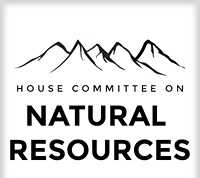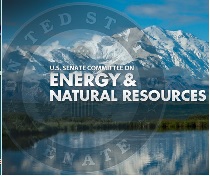Delaney: Combining tax reform and infrastructure is bipartisan solution country needs
WASHINGTON, D.C. – February 2, 2015 – (RealEstateRama) –– The White House has announced that President Obama’s 2016 Budget proposal will include international tax reform to pay for new infrastructure projects. This is the same framework Congressman John K. Delaney (MD-6) has advocated for two years, building a bipartisan coalition in Congress around combining international tax reform and infrastructure. In the 113th Congress, over 40 Republicans and 40 Democrats signed onto Delaney’s Partnership to Build America Act.
Last week, Rep. Delaney filed the Infrastructure 2.0 Act (H.R. 625), which establishes an 8.75% rate on existing earnings and using those revenues to fund the Highway Trust Fund for six years and establish a new infrastructure fund for state and local governments.
“We are pleased that the President has adopted the larger framework we laid out in the Infrastructure 2.0 Act, pairing international tax reform with increased infrastructure investment,” said Congressman Delaney. “As we proved last Congress with the enormously bipartisan Partnership to Build America Act, there is a deal to do with Democrats and Republicans using this new approach. By making our tax code more competitive and rebuilding the country’s crumbling infrastructure, we take the best ideas from both parties to serve the common good. I hope the Administration will continue to move closer to the specifics in our bill so that we can get this done with broad based support that it deserves. If we get the details right, we have the opportunity to create a triple bottom line benefit for our country: better infrastructure, more domestic investment and more good-paying jobs.”
Delaney is the only former CEO of a publicly-traded company in the House of Representatives.
Delaney’s Infrastructure 2.0 Act also includes a trigger for broader tax reform as well as a mechanism for long-term Highway Trust Fund stability. A summary is below.
The Infrastructure 2.0 Act
- Investing in 21st Century Infrastructure with Deemed Repatriation at 8.75% Tax Rate
- Under the Infrastructure 2.0 Act, existing overseas profits accumulated by U.S. multi-national corporations would be subject to a mandatory, one-time 8.75% tax, replacing deferral option and current rate of 35%.
- $120 billion to the Highway Trust Fund, enough to meet funding gap at increased levels for six years.
- $50 billion to capitalize the American Infrastructure Fund (AIF) a new financing mechanism for transportation, water, energy, communications and education projects. Leveraged to $750 billion, AIF financing (loans, bond guarantees and equity) is available to state and local governments. American Infrastructure Fund was first proposed in Rep. Delaney’s bipartisan Partnership to Build America Act.
- $25 million pilot program to create regional infrastructure accelerators, similar to the West Coast Infrastructure Exchange
- Under the Infrastructure 2.0 Act, existing overseas profits accumulated by U.S. multi-national corporations would be subject to a mandatory, one-time 8.75% tax, replacing deferral option and current rate of 35%.
- This frees the estimated $2 trillion in overseas earnings to return to the United States, spurring private sector re-investment and growth.
- Creating Long-term Highway Trust Fund Solvency and Policy Certainty
- The Infrastructure 2.0 Act provides six years of HTF solvency, providing immediate certainty to the private sector and policymakers.
- The legislation also establishes a bipartisan and bicameral commission that is tasked with developing a solution for permanent solvency of the Highway Trust Fund.
- Building a Path for Broader Tax Reform
- The Infrastructure 2.0 Act creates an eighteen month deadline for international tax reform.
- To encourage action, the legislation includes a forcing function: if reform is not enacted, a fallback international tax package to make U.S. business climate more competitive would be implemented.
- This pro-growth fallback reform package would end deferral, reduce anti-competitive over taxation, decrease taxes for companies paying fair rates abroad but increase taxes for companies in tax havens. This would eliminate the lock-out effect and allow for the free flow of profits back to the United States.
- Under this option, for Active Market Foreign Income, a company would pay a 12.25% tax to the U.S. on overseas profits if they are currently paying no tax and a 2% tax to the U.S. if they are already paying the OECD average of 25% abroad, with a sliding scale in-between.















